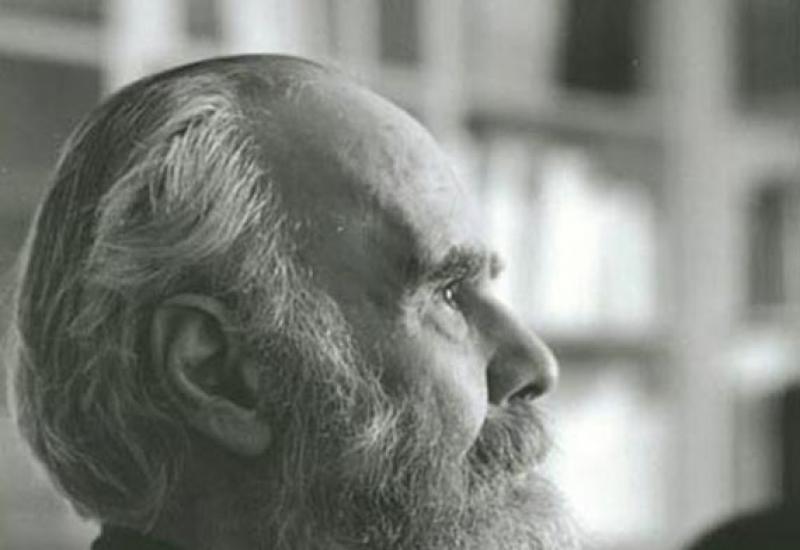A true believer - what is he like? Types of True Believers
True Believer: Thoughts on the nature of mass phenomena(English) The True Believer: Thoughts On The Nature Of Mass Movements listen)) is the first book by American philosopher Eric Hoffer, published in 1951. It is a study of the nature and content of mass movements of humanity (such as religious movements, political parties, national and social revolutions). First published in Russia in 2001.
Encyclopedic YouTube
1 / 2
Haram and Halal - Black and White
Why we believe the Bible is true (Russian) (Selected Scriptures)
Subtitles
Book structure
Part one. The temptation of mass movements
One of the central ideas of this work is the thesis about the similarity of all mass movements - religious movements, revolutions, political parties - not in doctrines or methods, but in essence, which allows us to talk about the common psychological type of all true believers. In the first part, E. Hoffer explains the emergence of any mass movement as a “thirst for change,” which, in turn, appears as a result of a person’s combination of discontent with a sense of his own strength. In order to change the existing system, those who wish to do so must kindle passionate hope in their followers. As another reason for a person’s commitment to any mass movement, the author names the need of people dissatisfied with their lives to free themselves “from their unwanted self.” In this liberation, Hoffer sees a desire for rebirth and reincarnation. If a person loses faith in himself, he needs faith in a “sacred cause.” The author also talks about the turnover and interchangeability of mass movements. He notes the possibility of stopping one such movement by replacing it with another, but does not consider this method of countering mass movements safe.
Part two. Potential true believer
In the second part, Hoffer provides a classification of dissatisfied people who most often become followers of large mass movements and thereby decide the fate of the nation. “The dissatisfied are found at all levels of life, but most of them are in the following categories: a) the poor; b) losers (those who have not found their place in life); c) exiles; d) minorities; e) teenagers; f) ambitious (facing either insurmountable obstacles or unlimited possibilities); g) obsessed with vices and obsessions; h) impotent (physical or mental); i) egoists; j) bored; l) sinners."
Part three. United action and self-sacrifice
Hoffer continues to explore the nature of mass movements through an analysis of their cultivation of the ability to act together and the readiness for self-sacrifice. These signs, common to all mass movements, are directly related to the alienation of people from themselves. E. Hoffer names a number of factors contributing to self-sacrifice, including deprivation of individuality and identification of a person with a group, the presentation of such an order as theater, underestimation of the existing, doctrine, fanaticism. Among the unifying elements he names hatred, imitation, persuasion and coercion, leadership, action and suspicion. In anti-individualistic tendencies, the author sees a movement back to primitivism. The readiness for self-sacrifice, Hoffer notes, is higher in a person when he is far from reality. This distance manifests itself in many aspects inherent in mass movements. For example, the spectacle of a mass performance captivates even the most balanced people - the theatricality of many rituals and practices characteristic of mass movements (for example, the army) allows them to retain most of their followers. Another important element is the rejection of the present, which manifests itself, for example, in the unattainability of set goals. The opposition present - past determines many mass movements on the path of their formation.
Part four. Beginning and the end
The characterization of mass movements continues through the definition of its foundations, such as discrediting the existing order. Hoffer determines with the help of which groups of people this discrediting becomes possible. This, for example, is a “man of his word” - the emergence of groups of such people can already be considered a revolutionary step. They are preparing the “soil” for fanatics who can launch the mechanism of mass movement. The fanatics themselves often come from uncreative “men of their words.” But they, according to Hoffer, are as useful for movement as they are dangerous due to the inability to stop. They are opposed by “men of action,” whose rise to power, at the same time, means the end of the dynamic phase of the mass movement. Hoffer analyzes the active phase of movements and comes to the conclusion that its duration is largely determined by the uncertainty of the goals they set. It also depends on the personality of the leader. The book also explores the beneficial aspects of a mass movement: a nation's passion for something signifies the high potential of that nation's courage. They also contribute to the awakening and renewal of societies.
Perception
IN THE USA
The book was published in the United States several years after the end of World War II and one generation after the Great Depression. In the author's homeland, the book became a classic. US President Dwight Eisenhower read True Believer in 1952 and recommended it to others. After this, in 1956, the magazine Look called Hoffer "Ike's favorite author" (Ike was Eisenhower's nickname). Allen Scarbrough included The True Believer in his list of 25 books that “must be read to know everything.”
In Russia
The scientific editor of the first Russian edition, A. A. Mikhailov, notes that “the attractiveness of Hoffer’s book lies in the originality and independence of his thinking.” . The editor sees the reason that Hoffer’s name is unfamiliar to the general Russian (as well as European) public in the uncharacteristic nature of the author’s personality for the academic environment: Hoffer was a longshoreman and farm laborer, a “free philosopher” who acquired his knowledge independently in libraries. Subsequently, the book became popular among people interested in political science and social science.
“The necessity of believing in false miracles sometimes exceeds not only logic, but, apparently, even sanity.” - Rev. William W. Rosher
“True Believer Syndrome deserves scientific research. What forces a person, in spite of everything, to believe in the incredible? How can a person, prudent in all other respects, remain a prisoner of deception and illusions even after they are brought to light, how can he hold on to them, and more and more strongly? " - Martin Lamar Keane
A concept coined by M. Lamar Keene to denote a pseudocognitive disorder characterized by a person's belief in paranormal or supernatural events that is not shaken even when presented with unequivocal evidence that such events are staged and the result of deception. Keen is a religious extortion whistleblower, although he has little success. Supposed channelers, healers, mediums and preachers still abound.
M.L. Keen believes that the true believer syndrome is the most important thing that imaginary psychics are hunting for, since no logic can shake a faith that is consciously based on a lie. However, it is difficult to believe that people who exhibit true believer syndrome are deliberately deceiving themselves. Perhaps a person who is told the truth, but who continues to believe the swindler, considers the information given to him unreliable. This type of self-deception does not require the person to deceive himself - he simply assumes that the information revealed to him is false. All this seems logically impossible. A person cannot believe or disbelieve what he knows. Both faith and unbelief involve the possibility of error; knowledge assumes that the error lies beyond reasonable probability. I may have been stunned by the revelation of the fraud of a medium, yet I continue to have faith in his abilities. In this case, I am deceiving myself, but I do not want to admit it to myself.
It is possible that people with true believer syndrome simply cannot believe that the event before them that exposes the deception can outweigh all other corroborating evidence from the past. Thoughts that both confirmation and refutation concern the same person caught in deception may be suppressed. There is always hope that, regardless of many cases of deception, at least one of the confirmations of some unusual phenomenon may turn out to be real, genuine. No one can prove that all the miracles demonstrated by people with supernatural powers are false; therefore, a true believer can justify his behavior by saying that he simply does not allow his hope to die. Such reasoning is not so illogical, although it may seem pathological to a person who has admitted to deception.
Apparently, it is not so easy to explain why a true believer continues to believe in some sorcerer, i.e. trust him, despite the fact that he had already admitted his fraud once. Trusting a person who calls himself a liar is unwise, and someone who continues to trust may seem crazy. Some true believers actually have problems with their heads, but others still deceive themselves, not excluding the possibility that the miracle worker truly has paranormal abilities, without knowing anything about it. After all, since there are people who believe in their extraordinary power, which they actually do not have, then why not assume that there are people with supernatural abilities who do not believe that they have special abilities.
A study conducted by psychologists Barry Singer and Victor Benassi at the University of California demonstrates the desire to believe in supernatural forces in the face of contrary evidence. They invited magician Craig Reynolds to perform some tricks in four introductory psychology courses. The two classes were not told that he was a magician who would perform amateur magic tricks. They were told that he was a graduate student with supernatural powers. In these classes, the psychology professor explicitly stated that he did not believe the graduate student had psychic abilities. In two other classes, students were told that there was a magician in front of them. Singer and Benassi reported that about two-thirds of the students in both groups believed that Craig was a psychic. The researchers were surprised to find no significant differences between the classes that were told different things. They then gave the same performance to two more classes, who were explicitly told that Craig had no supernatural powers, and that he was going to do the usual mind reading tricks. However, more than half of the students thought Craig was a psychic after seeing his magic tricks.
Singer and Benassi asked students if magicians could do what Craig did. Most students agreed that they could. They then asked the students to change their assessments of Craig's supernatural abilities in light of the negative data they were given. Believers in Craig's psychic powers have dropped to 55 percent. Students were then asked to estimate how many other "psychics" use cheap tricks instead of psychic powers. The general consensus is that most "psychics" are scammers. The students were again asked if they wanted to change their assessment of Craig's paranormal powers. The percentage of believers in Craig's abilities dropped to only 52 percent.
For many people, the ability to critically evaluate arguments for and against faith disappears from time to time. But this will not help us understand why people believe in the supernatural abilities of miracle workers, despite numerous cases of their exposure. Since people suffering from true believer syndrome are committed to their beliefs, it is useless to argue with them. Facts and logical proofs mean nothing to them. They believe things that are not true, and neither facts nor arguments can convince them that their beliefs are wrong.
Types of True Believers
In any case, there are three types of true believers, although they are clearly related to each other. Keane just mentioned one of the types. These are the people who believe in paranormal phenomena despite real facts. Their faith remains unshakable even after they are faced with overwhelming evidence. For example, people may not accept that Carlos (the famous forgery story) was fabricated even after this “miracle” was exposed. Keane mainly gives examples of people who are so reckless in their desire to communicate with the dead that no confirmation of the lies of supposed mediums or channelers can shake their faith.
Another type of true believer is the cult follower. Emily Harrison watched her mother, Debra Harrison, die, and Consegrity ® co-founder Mary Lynch practices "energy healing" that doesn't work. They believed Debra's illness was caused by "bad energy," but Lynch, M.D., must have known that Debra had diabetes. Instead of proper treatment, Lynch gave her colleague orange juice. Debra Harrison co-founded Consegrity with Lynch and did not seek medical help, even though she had all the signs of diabetes at the time of her death.
Despite the fact that diabetes can be treated and that the doctor should have recognized the obvious signs of the disease, Mary Lynch and Emily Harrison claim that the cause was the "negative energy" of members of the deceased Debra's family. As a result, Debra left the family and went with Lynch to another city to practice “healing energy.”
Lynch's irrational beliefs undoubtedly stem from her personal investment in healing energy, but Emily Harrison's decision to abandon her relatives and move on with Dr. Lynch is typical of cult followers. They have faith in the guru, which is unshakable. With such irrational thinking, there is no point in presenting evidence to convince people of the error of their ways. Their faith is not based on facts, but on devotion to man. This devotion can be so great that even the most vile behavior of the guru can be rationalized. * There are many examples where people are so devoted to a guru that they will rationalize or ignore extreme mental and physical abuse at the hands of their cult leader (or spouse or friend).
Another type of true believer is described by Eric Hoffer in his book The True Believer. Such people unwisely remain loyal to a cause, such as the murder of abortion doctors, or remain loyal to a guru like Jim Jones, whose followers committed mass suicide.
Undoubtedly, if there is any explanation for the true believer syndrome, it can only be the satisfaction of emotional needs. But why some people have such a strong emotional need to believe with equal evangelical zeal in immortality, or in racial or moral superiority, or in the latest fad of leadership - this question seems to have no answer. This is a hopeless matter. Eric Hoffer thinks similarly.
“The less a person is ready to value his own merits, the more he is ready to talk about the advantages of his nation, religion, race, good intentions...
A person probably thinks about his own affairs only when they are worthy of thought. When this is not the case, he switches from reasoning about his own meaninglessness to thinking about the affairs of other people...
A fanatic is a person who is incomplete and insecure in his life. He cannot achieve self-confidence from the resources of his own self, which he has renounced, but he finds it in a passionate commitment to the beliefs he wants to accept. This fanatical attachment underlies his blind devotion and religiosity, and man finds in all this a source of dignity and strength... He sees himself as an adherent and defender of a good cause, to which he remains faithful, and for the sake of which he is ready to sacrifice his own life.
Eric Hoffer seems to believe that true believer syndrome has something in common with the desire to abdicate personal responsibility for one's beliefs and actions - to free oneself from the burden of freedom.
Question from reader Boris: Hello! Looking at modern people who call themselves Christians and say that they believe in God, I understand perfectly well that about 1 in 10,000 of them are true believers. What do you think? On the Internet I found many unclear, so-called descriptions of the difference between a Christian and a pagan, written in a scientific manner. But the devil will break his leg there, essentially “0”. Can you somehow comment on who a true believer is?
In many ways, you are right Boris, I really have miscalculated the number of true believers. I would define the essence of the differences as follows.
Modern, so-called believers, would indeed be more correctly called pagans than Christians. Why?
Pagan praying to his gods, first of all, to fulfill your personal desires and needs “give a harvest, health, money, children, etc.” The pagan is not interested in what he wants from him; the most important thing for him is to satisfy his selfish desires or to appease, calm his fears, when a person prays out of fear or just in case. Doesn't remind you of anything? After all, this is how they do and this is how they pray, most modern so-called. "believers".
A true believer prays, first of all, to fulfill, and not your purely personal desires. A true Christian wants to please God the way the Lord desires, he reflects and asks himself the question “What does the Lord expect from me?”, “What does my Creator want from me?” and prays “Thy Will be done”. It is these issues that are the most important for him, and personal desires are secondary. You still need to be able to ask for something of your own, so as not to be a lying, selfish beggar before God. How to ask God correctly -
And modern would-be believers may never even think about what God wants from them in their entire lives. In truth, most people simply don’t care what God thinks about them and their lives, they are not interested in the Will of God, for them the most important thing is this their own “wants”. But you shouldn’t get angry and blame such people either, they are spiritual babies, and simply no one taught them real Faith in God.
Faith, which is needed only to beg something from God, is not Faith, but a parody! And such a person, as a rule, does not know or hear anything except his own “Give.” He wants to use God, roughly speaking, “to fuck Him,” and for this he promises generously and thoughtlessly in his prayers, but is not going to do anything, forgetting that he promised already upon leaving the Church.
Such people have always been and will be potential traitors to God, who “abandon” Him whenever it suits them.
And real living Faith is always “Action”, and not chatter, empty talk and promises. The faith of a Christian is tested by his righteous lifestyle and his Deeds for his beloved Creator, and not by the number of bows made and “give” said.
To understand the basic concepts properly, read the following articles:
- … Spelling dictionary of the Russian language
true believer- a true believer... Together. Apart. Hyphenated.
Sura 40. Believer- 1. Ha. Mime. 2. The Scripture was sent down from Allah, the Mighty, the Knowing, 3. Forgiving of sins, Accepting of repentance, Severe in punishment, Possessing mercy. There is no god but Him, and to Him there is an arrival. 4. The signs of Allah are disputed... ... Koran. Translation by E. Kuliev
Sura 40. Believer- 1. Ha, mime. 2. [This] Scripture was revealed by Allah, the Great, the Knower. 3. [He] forgives sins, accepts repentance, is severe in punishment, generously bestowing: there is no god but Him. To Him is the [ultimate] return. 4. People only argue about the signs of Allah... ... Koran. Translation by M. N. Osmanov
This page is an informational list. See also main article: Arabic name Below is a list of Arabic names and names of Arabic origin. Contents... Wikipedia
- (Kierkegaard) Soren (1813 1855) dates. philosopher, theologian and writer. In his works “Either or” (“Pleasure and Duty”) and “Sickness unto Death,” he talks about three stages of personality development: aesthetic, ethical and religious. Aesthetic stage of life... ... Philosophical Encyclopedia
JOHN THE APOSTLE EPISTLES- three books included in the new book. *canon. EPISTLES are among the *Conciliar Epistles, that is, addressed not to one community, but to the entire Church, although in 2 John and 3 John there are indications of the addressees. The author considers himself one of those who saw Jesus Christ in the days... ... Bibliological dictionary
- (Greek hermeneutike), in a broad sense, the art of interpretation and understanding. For a long time, hermeneutics was limited to the interpretation of texts, but in the 20th century. acquired the features of a philosophical discipline. Initially, hermeneutics referred to... ... Collier's Encyclopedia
The largest German musical dynasty. Johann Sebastian Bach is its greatest, but by no means its last representative. Thanks to the genealogy compiled by Johann Sebastian, the history of a family living in Central Germany can be traced back to... ... Collier's Encyclopedia
Books
- City of Kamen. Travel to Kitezh, Nikolai Morokhin. The invisible city of the righteous - Kitezh, Kitezh-grad, according to legend, sank under the water of Lake Svetloyar during the days of Batu's invasion. As the legend says, only the righteous and saints can see this...
Truly...
Together. Apart. Hyphenated. Dictionary-reference book
Ozhegov's Explanatory Dictionary
Ushakov's Explanatory Dictionary
Explanatory Dictionary by Efremova
Explanatory Dictionary by Efremova
Spelling dictionary-reference book
Spelling dictionary-reference book
Russian spelling dictionary
Word forms
Synonym dictionary
Dictionary of antonyms
"true believer" in books
51. And he said to him, “Truly, truly, I say to you, from now on you will see heaven open and the angels of God ascending and descending on the Son of Man.”
author Lopukhin Alexander3. Jesus answered and said to him, “Truly, truly, I say to you, unless someone is born again, he cannot see the kingdom of God.”
From the book The Explanatory Bible. Volume 10 author Lopukhin Alexander3. Jesus answered and said to him, “Truly, truly, I say to you, unless someone is born again, he cannot see the kingdom of God.” Nicodemus had not yet asked Christ anything, but Christ, Who Himself knew what was in man (2:25), directly answers the question that Nicodemus wanted to ask him.
5. Jesus answered, “Truly, truly, I say to you, unless one is born of water and the Spirit, he cannot enter the kingdom of God.”
From the book The Explanatory Bible. Volume 10 author Lopukhin Alexander5. Jesus answered, “Truly, truly, I say to you, unless one is born of water and the Spirit, he cannot enter the kingdom of God.” Nicodemus did not understand how a person can be born for a new life, and Christ shows him two factors under the influence of which this new birth is possible.
11. Truly, truly, I say to you, we speak of what we know and testify of what we have seen, but you do not accept Our testimony.
From the book The Explanatory Bible. Volume 10 author Lopukhin Alexander11. Truly, truly, I say to you, we speak of what we know and testify of what we have seen, but you do not accept Our testimony. Christ now begins to teach Nicodemus what he did not learn from Scripture, although he could have learned. First of all, He complains about
36. He who believes in the Son has eternal life, but he who does not believe in the Son will not see life, but the wrath of God remains on him.
From the book The Explanatory Bible. Volume 10 author Lopukhin Alexander36. He who believes in the Son has eternal life, but he who does not believe in the Son will not see life, but the wrath of God remains on him. Here John indicates the high purpose that God had in giving such power to the Son (cf. 3:15,16) and thereby makes it clear to his disciples how much they are missing by not joining
24. Truly, truly, I say to you, he who hears My word and believes in Him who sent Me has eternal life, and does not come into judgment, but has passed from death to life.
From the book The Explanatory Bible. Volume 10 author Lopukhin Alexander24. Truly, truly, I say to you, he who hears My word and believes in Him who sent Me has eternal life, and does not come into judgment, but has passed from death to life. Christ partially performs the resurrection of the dead even now. There are many people who are spiritually dead (Matt. 8:22; Rev. 3:1). About them
25. Truly, truly, I say to you, the time is coming, and has already come, when the dead will hear the voice of the Son of God, and having heard, they will live.
From the book The Explanatory Bible. Volume 10 author Lopukhin Alexander25. Truly, truly, I say to you, the time is coming, and has already come, when the dead will hear the voice of the Son of God, and having heard, they will live. What dead people is Christ talking about here? It is impossible to mean here the spiritually dead: the particularly solemn tone that is heard here (Christ twice
47. Truly, truly, I say to you, whoever believes in Me has eternal life. 48. I am the bread of life. 49. Your fathers ate manna in the wilderness and died; 50. And the bread that comes down from heaven is such that whoever eats it will not die.
From the book The Explanatory Bible. Volume 10 author Lopukhin Alexander47. Truly, truly, I say to you, whoever believes in Me has eternal life. 48. I am the bread of life. 49. Your fathers ate manna in the wilderness and died; 50. And the bread that comes down from heaven is such that whoever eats it will not die. Having proven to the Jews that they have no right to grumble about what Christ demands from
34 Jesus answered them, “Truly, truly, I say to you, everyone who commits sin is a slave of sin.” 35. But the slave does not remain in the house forever; the son remains forever. 36. So, if the Son sets you free, you will be truly free.
From the book The Explanatory Bible. Volume 10 author Lopukhin Alexander34 Jesus answered them, “Truly, truly, I say to you, everyone who commits sin is a slave of sin.” 35. But the slave does not remain in the house forever; the son remains forever. 36. So, if the Son sets you free, you will be truly free. Christ answers them that they do not have the spirit of freedom: they are slaves of sin.
51. Truly, truly, I say to you, whoever keeps My word will never see death.
From the book The Explanatory Bible. Volume 10 author Lopukhin Alexander51. Truly, truly, I say to you, whoever keeps My word will never see death. Christ does not want to judge the Jews Himself, but He cannot help but testify about Himself: He is prompted to do this by the Jews themselves, who began a stubborn struggle against Him. To those who believed in Him He
7. So again Jesus said to them, “Truly, truly, I say to you, I am the door of the sheep.” 8. All, no matter how many of them came before Me, are thieves and robbers; but the sheep did not listen to them.
From the book The Explanatory Bible. Volume 10 author Lopukhin Alexander7. So again Jesus said to them, “Truly, truly, I say to you, I am the door of the sheep.” 8. All, no matter how many of them came before Me, are thieves and robbers; but the sheep did not listen to them. Seeing such reluctance on the part of the Pharisees to understand Him, the Lord, nevertheless condescending to them, expressed His
21 Having said this, Jesus was troubled in spirit, and testified, and said, “Truly, truly, I say to you, one of you will betray Me.”
From the book The Explanatory Bible. Volume 10 author Lopukhin Alexander21 Having said this, Jesus was troubled in spirit, and testified, and said, “Truly, truly, I say to you, one of you will betray Me.” The thought that there was a traitor among the disciples disturbed the soul of Christ (see 11:33), - this was noted by one John, as he was the closest to the
12. Truly, truly, I say to you, he who believes in Me, the works that I do will he also do, and greater works than these will he do, because I go to My Father.
From the book The Explanatory Bible. Volume 10 author Lopukhin Alexander12. Truly, truly, I say to you, he who believes in Me, the works that I do will he also do, and greater works than these will he do, because I go to My Father. Returning now to His task - to console and encourage the apostles remaining in a world alien and hostile to them, the Lord first consoled (12-14)
23 And on that day you will not ask Me anything. Truly, truly, I say to you, whatever you ask the Father in My name, He will give it to you. 24 Until now you have asked nothing in My name; ask and you will receive, so that your joy may be complete.
From the book The Explanatory Bible. Volume 10 author Lopukhin Alexander23 And on that day you will not ask Me anything. Truly, truly, I say to you, whatever you ask the Father in My name, He will give it to you. 24 Until now you have asked nothing in My name; ask and you will receive, so that your joy may be complete. The Lord depicts the happy consequences of His
II. “Truly, truly, I say to you, unless one is born of water and the Spirit, he cannot enter the kingdom of God” John 3:5
From the book Above the Gospel author (Gribanovsky) MikhailII. “Truly, truly, I say to you, unless one is born of water and the Spirit, he cannot enter the Kingdom of God.” John 3:5 Grace-filled rebirth from the Holy Spirit is a necessary condition for entry into the Kingdom of God and into the Church founded by the Lord on earth, to fulfill the commandments














